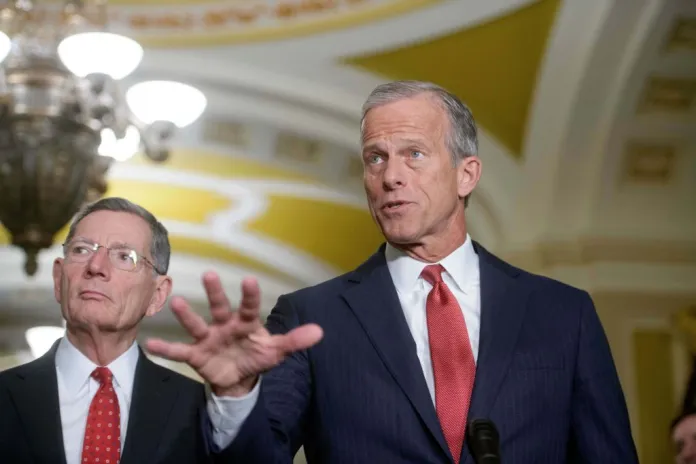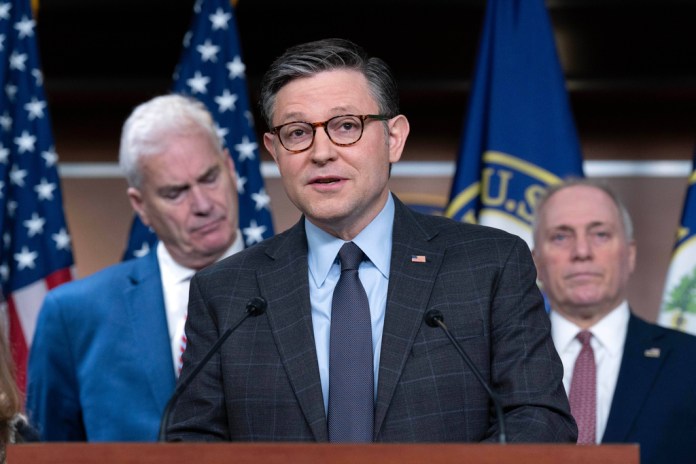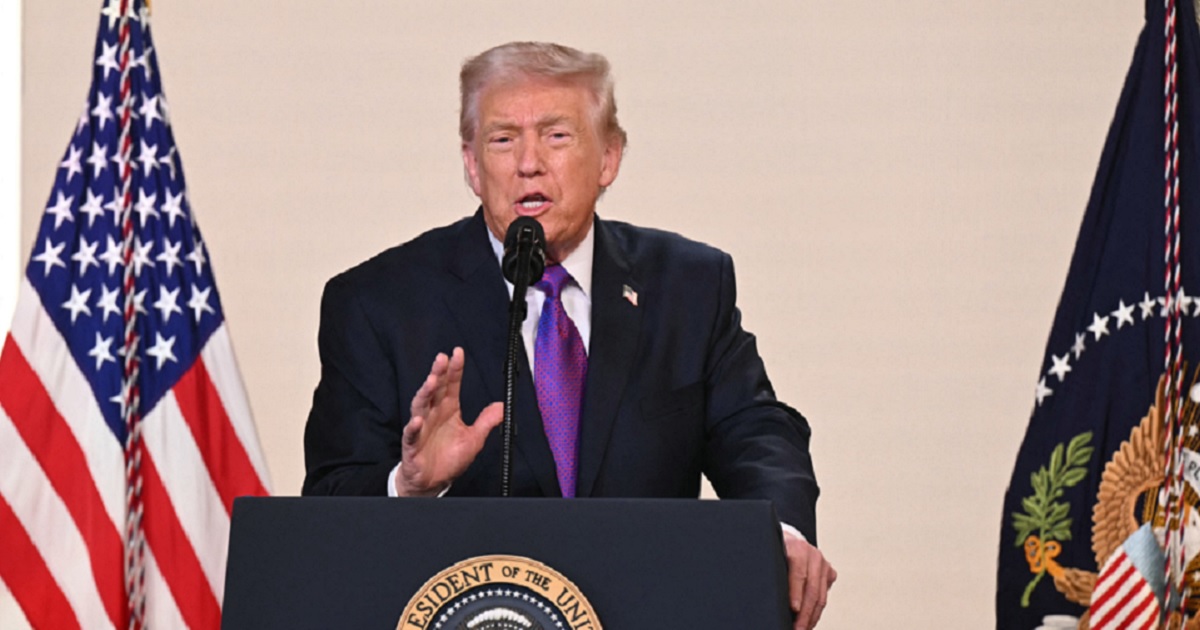House Republicans announce ‘big, beautiful bill’ 2.0 working group
House Republicans, through teh Republican Study Committee (RSC), have announced the formation of a “reconciliation 2.0 Working Group” to develop a second major budget reconciliation bill following the passage of the “One Big Beautiful Bill Act” on July 4. RSC Chairman August Pfluger described the first bill as a “generational victory” and emphasized the need to build on this momentum to address issues like the cost of living and to secure America’s future.
The group plans to gather input from committee members and grassroots organizations during the August recess to shape the new legislation. However, crafting a second reconciliation bill is expected to be challenging given the lengthy and complicated process of passing the first bill, which involved intense negotiations between centrist and conservative Republicans and stalling over proposed changes to Medicaid, nutrition assistance, and tax deductions.
While some fiscal conservatives hope the next bill will achieve additional spending cuts, others are skeptical that another bill of similar magnitude is feasible. Republican leadership sees multiple reconciliation bills as part of their legislative agenda ahead of the 2026 midterms.
Republicans aim to maintain their congressional trifecta to continue advancing their priorities, as losing control historically occurs during midterm elections. The second bill presents both an chance and risk: success could bolster GOP achievements, but failure or criticism could fuel Democratic opposition and messaging against them.
House Republicans announce ‘big, beautiful bill’ 2.0 working group
The dust has not settled since the One Big Beautiful Bill Act was signed into law on July 4, but House Republicans have already launched an initiative to plan for a second reconciliation bill.
The Republican Study Committee announced Friday the creation of its Reconciliation 2.0 Working Group, which will lead the committee’s efforts to “forge a robust conservative policy framework” for a second megabill.
RSC Chairman August Pfluger (R-TX) said in a statement that the first bill was a “generational victory” and the GOP needs to “capitalize on the momentum” from the first six months of the Republican trifecta.
“To fulfill the promises we made to the American people, conservatives must begin laying the groundwork for the second reconciliation bill to ensure we continue to drive down the cost of living and restore America’s promise for future generations,” Pfluger said.
Lawmakers will use the August recess to message on the One Big Beautiful Bill Act and receive feedback and suggestions from constituents on how to navigate a second reconciliation bill. The RSC working group will take policy proposals from committee members and outside grassroots groups as recommendations to formulate the bill.
Creating a second reconciliation bill will be much easier said than done. Crafting the first spending bill took over 14 months, long before the trifecta was in power, and Republicans worked up until the absolute last minute, setting record-breaking floor times.
Republican leadership spent months negotiating with both centrist lawmakers and conservative fiscal hawks as they strived to create a product that would earn them 218 votes in the House and 50 votes in the Senate.
Proposed changes to Medicaid, the Supplemental Nutrition Assistance Program, and the state and local tax deduction cap stalled the process multiple times over the last few months, at one point leading to votes being held overnight for hours as a handful of GOP lawmakers refused to vote for procedural measures unless their demands were answered.
Some fiscal hawks have expressed an eagerness to find additional savings and cut wasteful government spending in a second bill, but other conservatives are as skeptical as establishment Republicans that this could be done as monumentally as it was the first time.
Johnson has said the major tax and spending bill is just the beginning, and a second and possibly third reconciliation bill would be in the works ahead of the 2026 midterm elections.
Republicans are eager to keep hold of their trifecta, as the last time Republicans held one was from 2017 to 2019 during President Donald Trump’s first term. The GOP aimed for the One Big Beautiful Bill Act to be the crowning achievement of the first two years of Trump’s second term.
‘BIG, BEAUTIFUL BILL’ 2.0 COULD SET UP FISCAL HAWKS FOR MORE DISAPPOINTMENT
Republican leaders have acknowledged that the failure of trifectas, including theirs, is waiting until the last two years of an administration to make a significant change. Historically, in the midterm elections, the House flips to the party opposite the White House as the party’s high favor with voters begins to fade with each passing week due to contentious legislation, infighting, or executive actions by the president.
A second reconciliation bill could be a double-edged sword for the GOP, as Democrats market the “big beautiful bill” as dangerous and beneficial to the rich only. If Republicans can successfully pass a second spending bill, that doubles the ammunition for Democrats to use against them. Failure to do so, as well, hands Democrats a golden opportunity for messaging.
" Conservative News Daily does not always share or support the views and opinions expressed here; they are just those of the writer."




